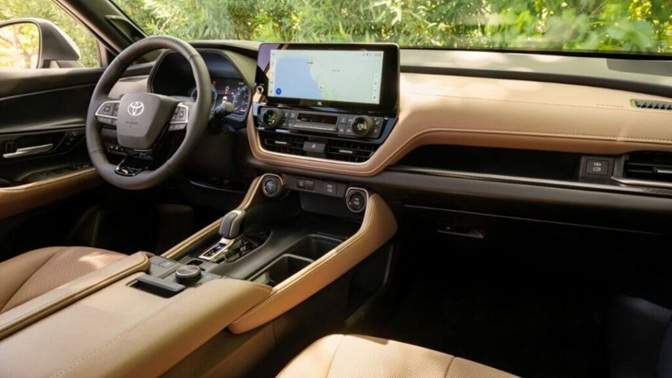EV Charging Cost Calculator
Calculate charging costs and driving expenses for your electric vehicle
Calculate Charging Cost
National average: $0.15/kWh
Estimated charging cost:
For 36.0 kWh of energy used
* Based on 4 charges per month
** Equivalent gallons of gasoline
Formula used: Charging Cost = Battery Capacity × (Target Charge – Current Charge) / 100 × Electricity Cost
This calculation doesn’t account for charging efficiency losses, which typically range from 10-15%.
Calculate Driving Cost
Miles or kilometers
$/kWh (National avg: $0.15)
Miles per gallon
$/gallon (National avg: ~$3.50)
Cost to drive 100 miles:
Cost Comparison
Formula used for EV: Cost = (Distance / Efficiency) × Electricity Cost
Formula used for Gas: Cost = (Distance / MPG) × Gas Price
Example: (100 miles / 3.5 miles per kWh) × $0.15 per kWh = $4.29

As electric vehicles continue to revolutionize transportation, one of the most common questions from both current and prospective EV owners is: "How much will it cost to charge my vehicle?" Understanding charging costs is essential for budgeting and comparing against traditional gasoline expenses. Our EV Charging Cost Calculator simplifies this process, providing accurate estimates tailored to your specific situation.
This comprehensive guide will walk you through everything you need to know about calculating EV charging costs, using our calculator effectively, and optimizing your charging strategy to save money.
How to Use the EV Charging Cost Calculator 2025
Our calculator is designed for simplicity, but these steps will help you get the most accurate results:
Step 1: Enter Your Battery Capacity
Locate your EV's battery capacity in kilowatt-hours (kWh). This information is typically found in your vehicle's specifications manual or on the manufacturer's website.
Common EV Battery Capacities:
| Vehicle Type | Typical Battery Capacity (kWh) | Range (Miles) |
|---|---|---|
| Compact EV | 30-45 kWh | 110-150 |
| Mid-size EV | 50-70 kWh | 150-250 |
| Full-size EV | 75-100 kWh | 250-350 |
| Luxury EV | 100-150 kWh | 350-500+ |
Step 2: Input Your Electricity Rate
Determine your electricity cost per kilowatt-hour (kWh). This information can be found on your electricity bill.
Average Electricity Rates by Region:
| Region | Average Cost per kWh |
|---|---|
| Northeast | $0.21 |
| West | $0.18 |
| Midwest | $0.14 |
| South | $0.12 |
| National Average | $0.15 |
Step 3: Set Charge Levels (Optional)
Adjust the current and target charge levels if you're not charging from empty to full. For battery health, it's generally recommended to charge to 80-90% for daily use.
Step 4: Calculate and Interpret Results
Click calculate to see your estimated charging cost. The calculator will also show you monthly and yearly estimates, plus equivalent gasoline costs for comparison.
The Mathematics Behind Electric Vehicle Charging Cost Calculator
Basic Charging Cost Formula
The fundamental formula for calculating charging costs is simple:
Charging Cost = Battery Capacity (kWh) × Electricity Cost (per kWh)
Expanded Formula for Partial Charging
When not charging from empty to full, use this formula:
Charging Cost = Battery Capacity × (Target Charge % - Current Charge %) / 100 × Electricity Cost
Example Calculation
Let's calculate the charging cost for a 75 kWh battery going from 20% to 80% at $0.15 per kWh:
- Energy Needed = 75 kWh × (80 - 20)/100 = 45 kWh
- Charging Cost = 45 kWh × $0.15 = $6.75
Factors That Affect EV Charging Costs
Several variables can influence your actual charging costs:
- Time-of-Use Rates: Many utilities offer lower rates during off-peak hours
- Charging Efficiency: Typically 85-90% of energy drawn actually reaches the battery
- Charging Speed: Level 2 charging is more efficient than Level 1 charging
- Battery Condition: Older batteries may have reduced efficiency
- Temperature: Cold weather can reduce charging efficiency
Cost Comparison: EV vs. Gasoline Vehicle
To put EV charging costs in perspective, let's compare with traditional gasoline vehicles:
Cost per 100 Miles:
| Vehicle Type | Energy Source | Cost per 100 Miles |
|---|---|---|
| Electric Vehicle | Electricity ($0.15/kWh) | $4.50 |
| Hybrid Vehicle | Gasoline ($3.50/gallon) | $7.00 |
| Standard Vehicle | Gasoline ($3.50/gallon) | $11.67 |
Assumptions: EV efficiency of 3.3 miles/kWh, hybrid efficiency of 50 mpg, standard vehicle efficiency of 30 mpg
| Battery Capacity (kWh) | Average Charge Cost |
|---|---|
| 5 kWh | $0.69 |
| 10 kWh | $1.39 |
| 15 kWh | $2.08 |
| 20 kWh | $2.77 |
| 25 kWh | $3.47 |
| 30 kWh | $4.16 |
| 35 kWh | $4.85 |
| 40 kWh | $5.55 |
| 45 kWh | $6.24 |
| 50 kWh | $6.94 |
| 55 kWh | $7.63 |
| 60 kWh | $8.32 |
| 65 kWh | $9.02 |
| 70 kWh | $9.71 |
| 75 kWh | $10.40 |
| 80 kWh | $11.10 |
| 85 kWh | $11.79 |
| 90 kWh | $12.48 |
| 95 kWh | $13.18 |
| 100 kWh | $13.87 |
| 110 kWh | $15.26 |
| 120 kWh | $16.64 |
| 130 kWh | $18.03 |
| 140 kWh | $19.42 |
| 150 kWh | $20.81 |
Tips for Reducing EV Charging Costs
- Utilize Off-Peak Rates: Charge overnight when electricity rates are typically lower
- Take Advantage of Public Charging: Many workplaces and shopping centers offer free charging
- Use Solar Power: Consider installing solar panels to offset charging costs
- Precondition While Plugged In: Warm or cool your car while still connected to minimize battery use
- Monitor Charging Habits: Use your vehicle's app to track and optimize charging patterns
Understanding Your Electricity Bill
To accurately calculate your charging costs, it's important to understand how you're charged for electricity:
- kWh Consumption: The amount of energy you use
- Base Rate: The cost per kWh of electricity
- Time-of-Use Rates: Variable pricing based on time of day
- Tiered Rates: Increasing rates as consumption increases
- Demand Charges: Additional fees based on peak usage (for some commercial accounts)
Frequently Asked Questions
How much does it typically cost to charge an electric car?
The average cost to fully charge a 60 kWh EV at home is about $9.00 at the national average electricity rate of $0.15 per kWh. Costs can range from $3.60 to $18.00 depending on your local electricity rates.
Is it cheaper to charge at home or at public charging stations?
Home charging is typically cheaper than public charging, especially if you can take advantage of off-peak rates. DC fast charging stations are usually the most expensive option.
Do electric cars cost more to insure?
Insurance costs for EVs are typically 15-30% higher than comparable gasoline vehicles, primarily due to higher repair costs and higher vehicle values.
How often do I need to charge my electric car?
This depends on your daily driving distance. Most EV owners charge their vehicles 2-3 times per week, often overnight at home.
Can I charge my EV using a regular wall outlet?
Yes, but Level 1 charging (using a standard 120V outlet) is very slow, typically adding only 3-5 miles of range per hour. Most EV owners install a Level 2 charger for faster charging.
Understanding EV charging costs doesn't need to be complicated. With our EV Charging Cost Calculator and the information in this guide, you can accurately estimate your charging expenses and make informed decisions about your charging habits.
While the upfront cost of EVs may be higher than traditional vehicles, the significantly lower fueling costs make them more economical over time. As electricity rates remain relatively stable compared to gasoline price fluctuations, EV owners enjoy more predictable transportation energy costs.
Remember that while calculations provide helpful estimates, actual charging costs may vary based on your specific circumstances, vehicle efficiency, and local electricity rates. With practice, you'll develop an intuitive understanding of your EV's energy consumption that will help you maximize efficiency and minimize costs.
You’ll probably also be interested in our charging time calculator.
Similar Automotive Calculators


